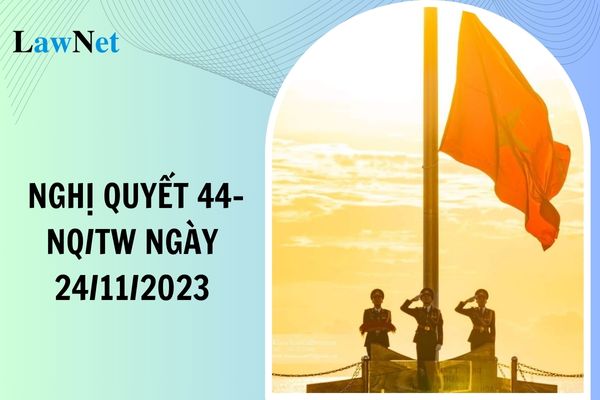Is it correct that whoever respects national-interest, independence, sovereignty, unity, territorial integrity, friendly relations, equitable cooperation, mutual benefit, and joint development with Vietnam is a partner of Vietnam?
Is it correct that whoever respects national-interest, independence, sovereignty, unity, territorial integrity, friendly relations, equitable cooperation, mutual benefit, and joint development with Vietnam is a partner of Vietnam?
The viewpoint of correctly and flexibly applying the perspective of partners and subjects: Those who respect national and ethnic interests, independence, sovereignty, unity, and territorial integrity, friendly relations, equal cooperation, mutual benefit, and mutual development with Vietnam are considered partners; any forces with conspiracies and actions against our nation's cause of building and defending the Motherland are considered subjects.
This is one of the viewpoints of the Central Executive Committee of the 13th Communist Party regarding the Strategy for Defending the Motherland in the new situation, as stated in Resolution 44-NQ/TW dated November 24, 2023.
Download Detailed outline introducing Resolution 44-NQ/TW dated November 24, 2023
This is also the answer for week 3 of the Online Competition for the People's Army of Vietnam's 80 Years of Construction, Combat, and Growth:
Resolution No. 44-NQ/TW dated November 24, 2023, of the Central Executive Committee of the 13th Communist Party on the Strategy for Defending the Motherland in the new situation, states the viewpoint: “Those who respect national and ethnic interests, independence, sovereignty, unity, territorial integrity, friendly relations, equal cooperation, mutual benefit, and mutual development with Vietnam are considered partners.”

Is it correct that whoever respects national-interest, independence, sovereignty, unity, territorial integrity, friendly relations, equitable cooperation, mutual benefit, and joint development with Vietnam is a partner of Vietnam? (Image from Internet)
What are the principles of national defense and security education in Vietnam?
Based on Article 5 of the Law on National Defense and Security Education 2013, the principles of national defense and security education in Vietnam are stipulated as follows:
- Complying with the Constitution and laws of the Socialist Republic of Vietnam, under the leadership of the Communist Party of Vietnam and the unified management of the State.
- National defense and security education is the responsibility of the political system and all the people, with the State playing a leading role.
- Combining national defense and security education with political and ideological education, legal education, and linking it to building a comprehensively strong foundation.
- Comprehensive education with focused, targeted approaches using appropriate forms; combining theory with practice, and theory with practical application.
- The national defense and security education program and content must be appropriate for each subject, promptly responding to current practical situations.
- Ensuring state secrecy, planning, succession, development, scientific, modern, easy to understand, practical, and effective.
What are viewpoints on building the national defense and security education program at upper secondary school level in Vietnam?
According to Section 2 of the national defense and security education program at upper secondary school level issued with Circular 46/2020/TT-BGDDT, the viewpoints on building the national defense and security education program at upper secondary school level in Vietnam are as follows:
[1] Inheritance and Modernity
The national defense and security education program is built based on the perspectives and guidelines of the Communist Party and state laws on the Strategy to Defend the Socialist Republic of Vietnam. It is constructed on the foundation of theoretical and practical traditional experiences of defending the country, Vietnamese military art, and updated with achievements of modern military science and pedagogy.
[2] Development of General Qualities, Common and Specific Capacities
The program clearly defines the qualities and capacities that can be formed and developed in students through the subject: on one hand, the program is based on the requirements for achieving qualities and capacities as a basis and starting point for selecting educational content; on the other hand, the program forms and develops essential qualities and core capacities for students by guiding them to acquire and apply the subject content to practical situations.
[3] Practical Application and Practicality
The program emphasizes practice, training, and application as important content, as well as a practical and effective method to develop students' qualities and capacities. This content focuses on applying knowledge of defense and security and skills in practice to contribute to the development of specific capacities in the national defense and security education subject.
[4] National Identity and Humanity
It helps students understand the right perception of patriotism, national spirit, humanity, the solidarity of the Vietnamese people in building and defending the country; international solidarity; and helps students develop values of humanity, community spirit, and towards values of tolerance, compassion, respect, peace, harmony, cooperation, and progress for social development.
[5] Openness and Connectivity
On the basis of ensuring content according to unified themes nationwide, the program allocates a certain time for schools to guide students in understanding defense, security issues, local traditions, and military art, and building an educational plan suitable to local conditions.
The course program arranges lectures appropriately with a coherent supplement of knowledge from grades 10 to 12, meeting the requirements for teaching the national defense and security education subject in high schools, suitable for knowledge, physical development, and subject characteristics.

